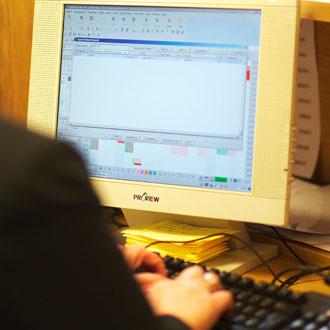Offering people a computer-based cognitive behavioural therapy programme for depression did nothing to improve their symptoms, according to a study by York University academics published in the BMJ.
The study – which included almost 700 patients who scored at least 10 on the nine-item Patient Health Questionnaire – found computerised cognitive behavioural therapy (CBT) did not lead to any improvement in patients’ severity of depression over two years, when added to usual care from the GP.
The patients were given both commercial and freely available tools, neither of which offered any benefit over the usual offered by their GP.
The authors put down the lack of effect to ‘low adherence and engagement with treatment’ – only around one in six people completed all the CBT sessions.
The researchers concluded: ‘Supported computerised CBT does not substantially improve depression outcomes compared with usual GP care alone.’
They called for a review of promotion and commissioning of such computerised CBT tools, which are currently recommended by NICE for patients with mild to moderate depression, as an initial therapy as part of the ‘stepped care’ approach.
However, a related editorial said that the participants in the study had ’more severe symptoms than those usually considered suitable for low intensity interventions such as guided self-help’ and concluded that ‘it is likely to remain a useful intervention’.
BMJ 2015; available online 11 November
Pulse October survey
Take our July 2025 survey to potentially win £1.000 worth of tokens













